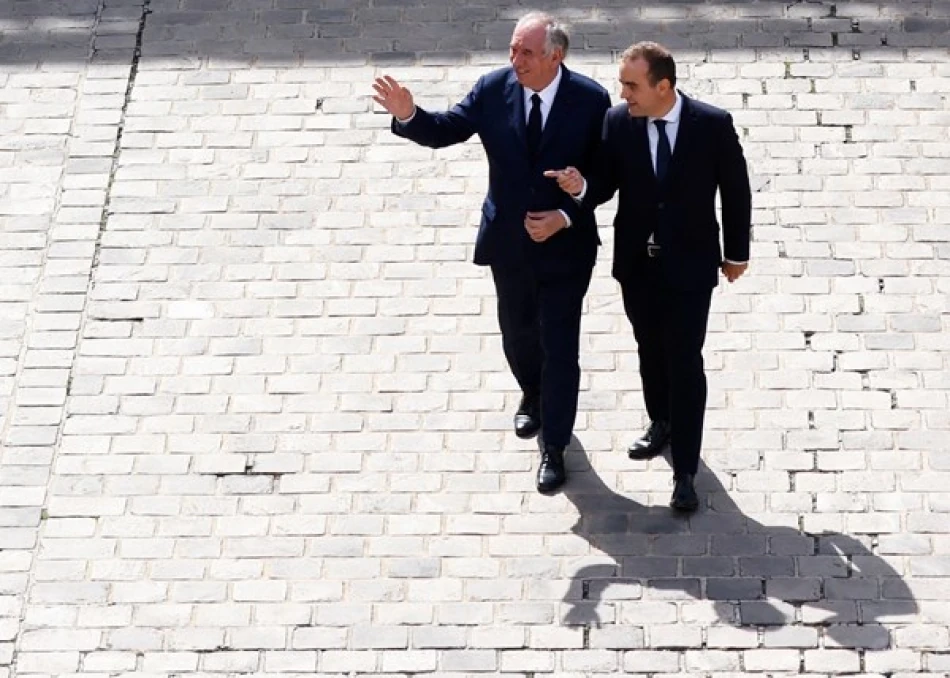
Newly Appointed French PM Faces Protests as He Assumes Office
France's Political Crisis Deepens as New PM Faces Mass Protests on Day One
France's political instability reached a new crescendo as Defense Minister Sébastien Lecornu began his tenure as the country's seventh Prime Minister under Emmanuel Macron, greeted by nationwide protests and a massive 80,000-strong police deployment. His appointment comes just one day after parliament's no-confidence vote toppled François Bayrou's government, highlighting the deepening paralysis gripping Europe's second-largest economy.
A Revolving Door at Matignon Palace
Lecornu's appointment underscores the extraordinary political turbulence that has defined Macron's presidency, particularly since his second term began in 2022. With five prime ministers in just two years, France now exhibits the kind of governmental instability typically associated with Italy's post-war politics rather than the Fifth Republic's traditionally strong executive system.
The rapid succession of prime ministers reflects Macron's weakened position following his decision to call snap elections in June 2024, which resulted in a hung parliament. Without a clear majority, his government has become hostage to shifting parliamentary alliances and increasingly assertive opposition parties.
Street Anger Meets Political Deadlock
The timing of Wednesday's protests reveals the toxic combination of political instability and social unrest that has become Macron's signature challenge. Interior Minister Bruno Retailleau's warning of "zero tolerance" for violence or blockades of key infrastructure suggests authorities expect significant disruption.
The deployment of 80,000 police officers—a massive security operation by any standard—indicates the government's concern about the scale and intensity of public anger. This level of mobilization rivals responses to the Yellow Vest protests that rocked Macron's first term and demonstrates how political crisis can quickly spiral into street confrontation in France's protest-prone political culture.
The Lecornu Gambit: Military Credentials in Civilian Crisis
Macron's choice of his Defense Minister represents a calculated bet on stability over political finesse. Lecornu, 38, brings technocratic competence and loyalty to the role, having served in various ministerial positions since 2017. His military portfolio may also signal Macron's desire for someone capable of maintaining order during turbulent times.
However, appointing a defense minister as prime minister during domestic upheaval carries risks. Opposition parties will likely portray this as further evidence of Macron's authoritarian tendencies, particularly given the heavy police deployment coinciding with Lecornu's first day.
Economic Implications of Political Paralysis
France's governmental instability comes at a particularly vulnerable moment for European markets and the broader EU project. With Germany facing its own political uncertainty following the collapse of Olaf Scholz's coalition, the Franco-German engine that traditionally drives European integration is sputtering.
Bond markets have already shown nervousness about French political risk, with spreads over German bonds widening during previous government crises. Investors will be watching closely to see whether Lecornu can build the parliamentary coalitions necessary to pass crucial budget legislation and economic reforms.
The European Central Bank's monetary policy decisions also depend partly on political stability in major member states. Continued French political chaos could complicate the ECB's efforts to manage inflation and support growth across the eurozone.
The Path Forward: Compromise or Continued Crisis
The Élysée Palace's statement that Macron believes agreement between political forces is possible sounds increasingly hollow given the pattern of recent months. Lecornu's mandate to consult with parties and seek "necessary agreements" before forming a government suggests a more cautious approach than his predecessors' rushed cabinet formations.
Yet the fundamental arithmetic of the National Assembly remains unchanged. Without significant compromises from either Macron's centrist bloc or opposition parties, France faces the prospect of continued governmental instability that could persist until the next presidential election in 2027.
The success or failure of Lecornu's mission will likely determine whether France can restore the political stability that has been the hallmark of the Fifth Republic, or whether the country enters a prolonged period of Italian-style governmental chaos that could reshape French politics for years to come.
Most Viewed News

 Layla Al Mansoori
Layla Al Mansoori






